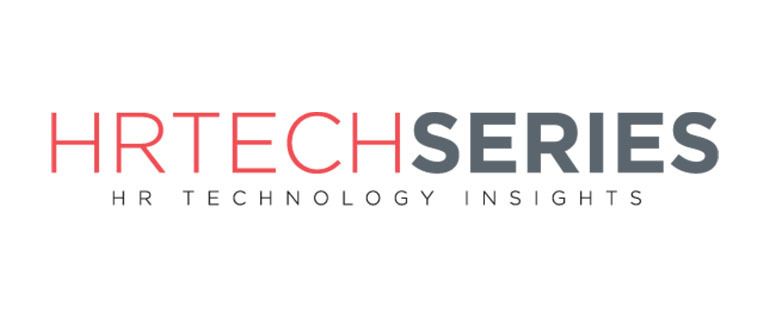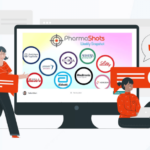Journey into Tech
Hi Laura, welcome to the HRTech Interview Series. Please tell us about your journey in the industry and how you arrived at Model N.
I’m one of the fortunate ones who discovered HR by chance (as opposed to by design). After obtaining an undergrad degree in psychology, I needed to earn money to fund the continuation of my education in order to become a practicing psychologist. After college, I was hired into an entry level role within HR at Visa, and that’s where I fell in love with HR and decided to make it my career. It’s been the perfect and most rewarding fit for me, helping people become happier and more fulfilled in their experiences at work. In the last 20+ years, I’ve had progressive levels of responsibility in HR leadership roles across different industries, including financial services, high tech and life sciences. What appealed to me about the opportunity at Model N was the transformation journey the company was on and the opportunity I saw to contribute to its future success by forming a world-class HR team to support the growth and scale of this business.
Recommended: HR Tech Interview with Kim Sullivan, Chief Human Resources Officer at Sitecore
How has the role and functions of a Chief People Officer evolved since the onset of the pandemic? How did you cope with the challenges as a CPO during this period?
There is no question that the pandemic experience has been a game-changer for HR professionals and has put our work driving employee experience and culture at the top of the priority list for companies. In the last three years of disruption due to the pandemic and political and other societal factors, we’ve seen radical shifts in expectations that employees have for the companies they work for. As a Chief People Officer, it hasn’t always been easy to navigate these unprecedented times and the resulting impacts on our workforce – there hasn’t been a pandemic playbook to work from! However, my focus has always been to try to do what is right for our people, and I take the responsibility for listening, adapting and responding to changing employee needs and expectations very seriously. I have found that it is more critical now than ever before to maintain an active dialogue with our employees to keep a close pulse on how employees are feeling. It is essential to driving employee engagement that we listen to our people and ensure that they know they are being heard, and we accomplish this in different ways, such as our quarterly employee experience surveys. Additionally, the actions we take to drive programs and initiatives that support a positive employee experience must reinforce our genuine commitment to supporting the comprehensive needs of our employees, from the most foundational needs like competitive pay to the most aspirational needs like career advancement. We know our employees expect more than just a paycheck and benefits – they want to work for a company that truly values them and where they feel a sense of connection and belonging. I have found that demonstrating this commitment to seeking feedback and listening has been essential to establishing trust with our people, so they know we are always seeking to do the right thing for them to create the best possible work experience at Model N.
Recommended: HR Tech Interview with Steve Black, Co-Founder & Chief Strategy Officer at Topia
How can industries, particularly those linked to life sciences and healthcare, address talent shortages?
Thinking more creatively about ways to fill hiring needs is essential to managing the realities of shortages in the available talent market. Being more flexible on hiring requirements, including hiring more junior talent and/or hiring individuals with transferable skills, is a key strategy to success and may even lead to better results in the long run. Many of the hiring needs we have as a life sciences company require skills that are specialized and in hot demand across our industry, which makes the competition to attract talent tougher. With this reality, we have active conversations with hiring managers about ways to open up the available talent pool to tap into great candidates who may not meet all of the desired hiring criteria but who have the potential to be successful with investment from us to develop and grow them through active training and mentoring from more experienced employees. Opening up the available talent pool is also one of the key ways we have been successful in diversifying our global employee population, which is a strategic priority at Model N. Finally, ensuring that we have a strong employee brand and value proposition that we can leverage to differentiate ourselves as an employer of choice in our recruiting efforts is essential.
Your predictions on the future of HR technology and how other industries could also benefit from adopting HR technology to meet global talent management demands:
The importance of HR technology and having the right people systems in place to provide HR metrics and data to support business decisions cannot be understated. As a people function at Model N, we are already grounded in a strong foundation of systems that provide the metrics and data to drive all decisions related to our organizational health. These systems also provide us with critical trend information to guide our thinking about what HR initiatives and actions are necessary to support the employee experience as our company grows and scales. Having the right HR systems in place is an essential investment for any HR organization now and in the future and is really the fuel that supports a progressive, future-focused and strategic people function.
Recommended: HR Tech Interview with Satish Gannu, Chief Technology Officer at Korn Ferry Digital
Your advice to other HR and talent management professionals looking to adopt to ever-expanding HR technology innovations to attract and retain great people:
My best advice is to ensure you have a compelling business case that articulates why having the right HR technology in place is essential to driving people-related decisions that lead to business results and company success. Now more than ever before, HR has a strategic seat at the executive table with a direct impact to the bottom line of any organization. Having the support and understanding at the executive level about how the investment in HR technology leads to business success is a critical first step.
Thank you, Laura! That was fun and hope to see you back on HR Tech Series soon.
[To participate in our interview series, please write to us at sghosh@martechseries.com
Laura joined Model N as SVP and Chief People Officer in November, 2018. Laura is responsible for all aspects of human resources, including talent attraction and retention, employee learning and development and culture initiatives to grow and enhance Model N’s reputation as a great place to work.
She has 20+ years of HR experience across a variety of industries, including high tech and financial services. Prior to Model N, Laura led the people functions for high tech startups, including SnapLogic and Couchbase. She also spent a number of years in global HR leadership roles at Visa, Inc.
Laura is passionate about building best-in-class company cultures and creating high-performing organizations where employees are empowered and motivated to do the best work of their careers. She received her bachelor’s degree in psychology from Indiana University of Pennsylvania.

















